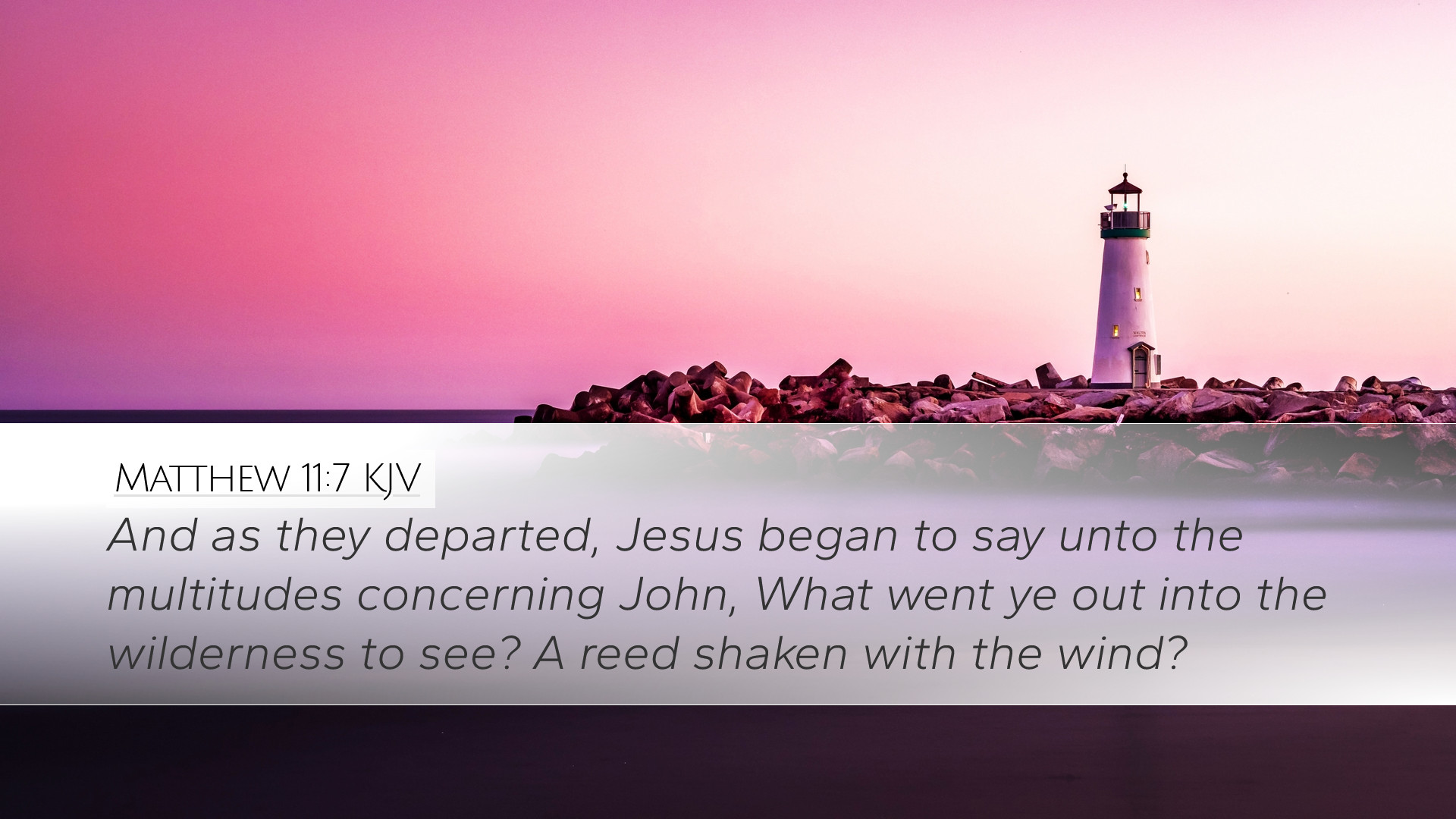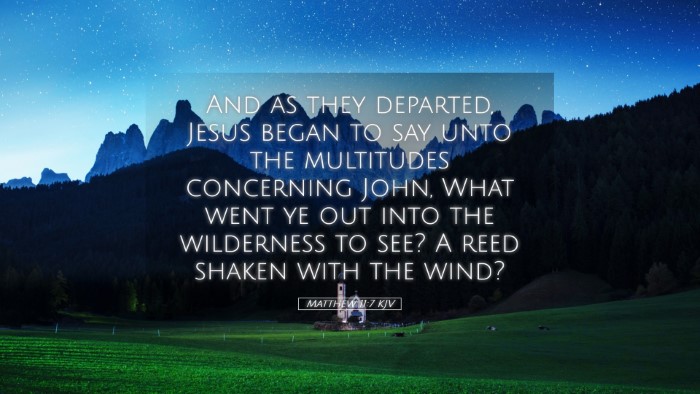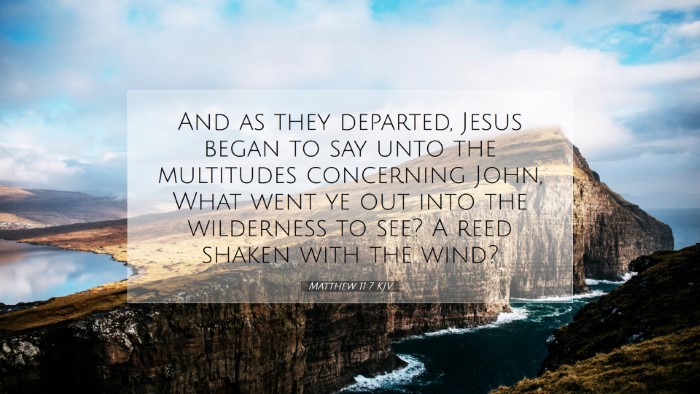Bible Commentary on Matthew 11:7
In the Gospel of Matthew, chapter 11, verse 7, we find a poignant reflection on the nature of John the Baptist and his ministry. Jesus, after sending John’s disciples away with reassurances of His messianic identity, turns to the people to expound on the significance of John. This verse reads:
“As they departed, Jesus began to say to the crowds concerning John, ‘What did you go out into the wilderness to see? A reed shaken by the wind?’”
Understanding the Context
To grasp the full meaning of Matthew 11:7, one must consider the context in which Jesus addresses the crowd. John the Baptist, imprisoned for proclaiming righteousness, sent messengers to inquire whether Jesus was indeed the prophesied Messiah. In the preceding verses, Jesus indirectly confirms his messianic work by citing his miracles and proclamations to the poor.
Exposition of Matthew 11:7
The Question: What Did You Go Out to See?
Jesus poses a rhetorical question that prompts self-examination among the listeners. What provoked them to seek the austere prophet in the wilderness? The answer to this question reveals their expectations and motives.
1. The Nature of John’s Message
John’s ministry was characterized by a call to repentance and the impending arrival of the Kingdom of Heaven. He did not cater to popular opinion or worldly comfort. Instead, he preached boldly against sin, challenging his audience to reflect on their spiritual lives.
2. The Significance of the Wilderness
The setting in the wilderness symbolizes a place of separation from the distractions of everyday life. This leads the followers to a place where they are confronted with their own sinfulness and the need for redemption.
“A Reed Shaken by the Wind”
Jesus’ metaphor of a reed shaken by the wind contrasts the steadfastness of John’s character with the instability of popular opinion and societal pressures. In ancient Israel, reeds were known for their weakness and tendency to sway with the slightest breeze.
The Contrast with John the Baptist
John was not like a reed; he was unwavering in his commitment to God’s purpose. Despite the persecution he faced and the doubts that even arose in his own heart, John remained resolute. Matthew Henry remarks that John was neither fickle in his conviction nor compromised by the fear of man.
Insights from Commentaries
-
Matthew Henry: Henry emphasizes the boldness of John the Baptist, interpreting the reference to a reed as a continuation of themes surrounding the strength of one’s faith versus the weakness of worldly sentiment. He notes that true prophets often stand firm, unshaken by external pressures, unlike those swayed by public opinion.
-
Albert Barnes: Barnes highlights that Jesus uses this question to illustrate John’s steadfastness. He points out that while some sought superficial signs, John pointed them toward deeper spiritual truths. Barnes further elucidates that John was a man of integrity and purpose, unshaken by the prevailing winds of popular thought.
-
Adam Clarke: Clarke provides context about the societal and spiritual climate of the time. He explains that John’s mission was revolutionary, calling individuals to depart from their complacent attitudes. His serious demeanor and lifestyle were catalysts for a serious examination of faith among the people.
Theological Implications
Matthew 11:7 invites theologians and scholars to consider the personal and collective implications of engaging with prophetic voices. John’s willingness to confront societal norms challenges modern believers to reflect on the integrity of their convictions amidst a shifting cultural landscape.
1. The Call to Steadfastness
Like John, the Church is called to remain steadfast in the truth of the Gospel. As Jesus identifies John’s unwavering spirit, followers of Christ today are similarly called to resist societal pressures that prompt compromise or vacillation in their faith.
2. The Nature of Authentic Prophethood
Authentic prophetic voices must speak the truth irrespective of how it resonates with popular or worldly views. This passage serves as a reminder that a true prophet’s value does not lie in their adherence to societal expectations but in their alignment with God’s will.
3. Embracing Prophetic Challenge
In the inner workings of the Church, there is often a pressing need for figures who, like John, will challenge complacency. The ability to confront sin and call for repentance continues to be a crucial function of the church community in contemporary society.
Conclusion
Matthew 11:7 serves as a profound reflection on the nature of prophetic ministry through the life of John the Baptist. Jesus’ acknowledgment of John’s steadfastness invites believers to engage seriously with their faith and the call to righteousness. As pastors, students, theologians, and scholars meditate on this verse, may they find inspiration in the unwavering commitment of John the Baptist and a renewed call to embody such resoluteness in their spiritual endeavors.


